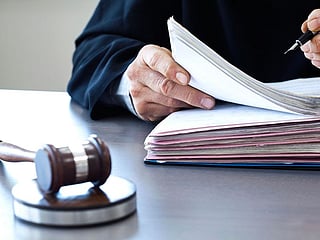Omani woman tests positive for cholera after visiting Iraq
Outbreak can be traced to low water levels in the Euphrates and winter flooding

Muscat: An Omani woman was diagnosed with cholera, after she recently came back from Iraq, according to the Ministry of Health.
The ministry said that the patient, who is undergoing medical treatment in a government hospitals in Muscat, is in stable health condition so far.
Two other Omanis traveling with the woman tested negative for the disease.
The Ministry of Endowment and Religious Affairs have issued health precautions for Omanis wanting to travel to Iraq.
It is Oman’s first cholera case in years and came after a cholera outbreak swept through a number of Iraqi governorates earlier this year.
There are more than 1,800 cholera cases in Iraq, according to the Ministry of Health.
Meanwhile, the Ministry of Health in Bahrain cleared seven patients infected with cholera, including a woman who was diagnosed in Kuwait.
Initially, 55 patients arriving from Iraq were suspected of being infected, but only seven were then diagnosed. All the patients have since recovered, the Ministry said.
Public Health Director, Dr. Mariam Al Hajiri, said that Bahrain is preparing a comprehensive plan to spread awareness about the disease in the country to ensure that all necessary preventative measures are taken.
Under the new plans, medical staff have been informed about ways to detect suspicious cases by providing them with basic information about the disease, as determined by the WHO, and reporting cases to the Public Health Directorate at the Ministry of Health.
A cholera outbreak in Iraq risks turning into a region-wide epidemic as millions of pilgrims prepare to visit the country, UNICEF’s Iraq director said last week.
The disease, which can lead to death by dehydration and kidney failure within hours if left untreated, was detected west of Baghdad in September and has since infected at least 2,200 people in Iraq and has killed six.
Millions of Shiites are due to visit Iraq in December for Arbaeen, a religious ritual marking the end of an annual mourning period for the Prophet Mohammad’s (PBUH) grandson Hussain.
The outbreak can be traced to a number of factors including low water levels in the Euphrates and winter flooding that has contaminated the river and shallow wells with sewage water.
The war against Daesh, which controls large swathes of territory in northern and western Iraq has also contributed to the outbreak.
The conflict has displaced more than 3 million people, with many living in camps where conditions are conducive to the spread of cholera - a bite of contaminated food or a sip of contaminated water is enough to cause infection.
Hawkins said UNICEF has only limited access to areas controlled by Daesh, which swept across the Syrian border in mid-2014 in a bid to establish a modern caliphate.
In response to the outbreak, UNICEF is providing bottled water, oral rehydration salts and installing community water tanks, but like most humanitarian operations in Iraq it is severely underfunded.
Sign up for the Daily Briefing
Get the latest news and updates straight to your inbox


